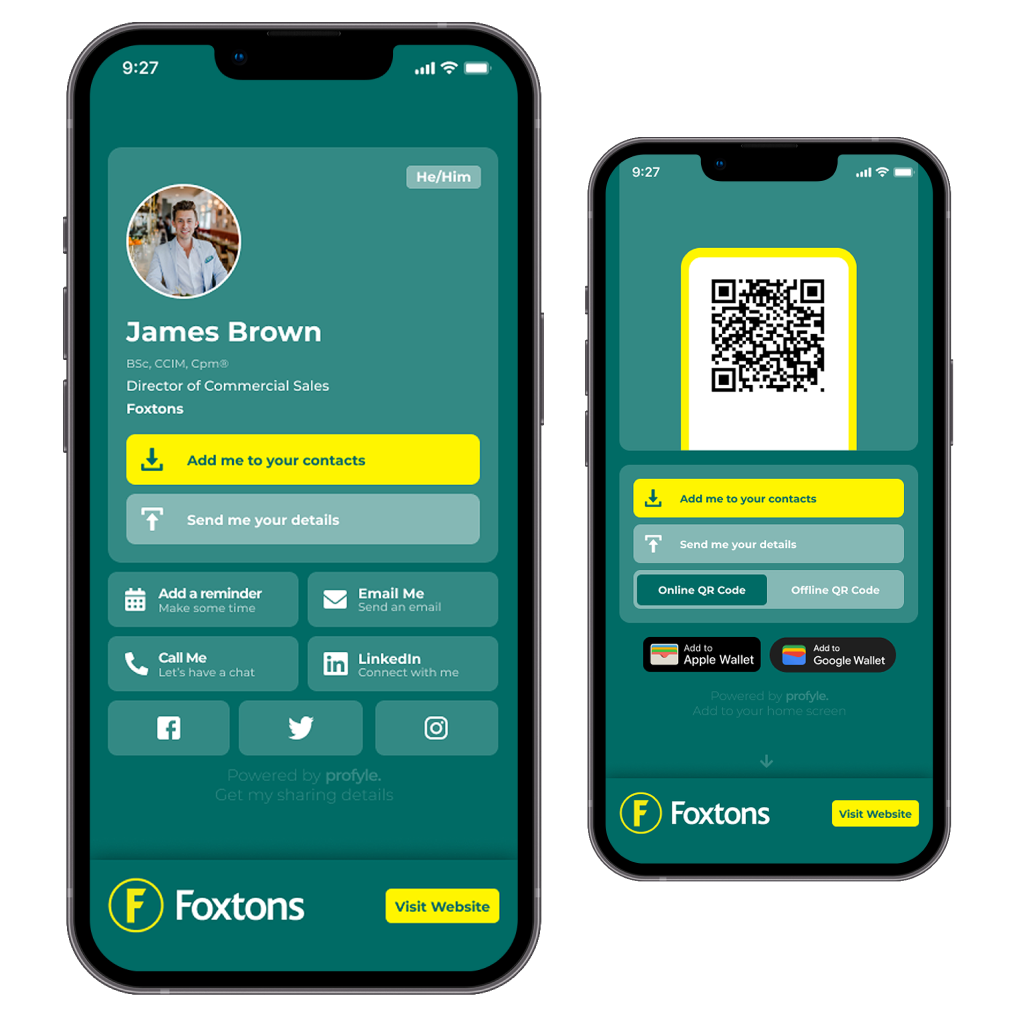Did you know that 92% of UK consumers prefer brands that support eco-friendly initiatives? Even small steps toward corporate sustainability in the UK can greatly affect consumer choices.
The Three Pillars of Corporate Sustainability in the UK
Corporate sustainability in the UK rests on three main pillars:
-
Environmental. Aims to reduce harm to the planet by cutting waste and saving resources.
-
Social. Involves fair treatment of employees, customers, and communities, promoting equity and well-being.
-
Economic. How you combine profits and ethical finance. Balancing these areas helps businesses act responsibly and sustainably.
Remember, small actions can have big impact.
ESG vs. The Three Pillars
ESG (Environmental, Social, and Governance) and the three pillars both seek sustainability. ESG helps investors assess a company’s ethical impact. It uses clear and measurable criteria.
The three pillars give a wider way to include sustainability in every part of business operations.

Profyle: Supporting All Three Pillars
Profyle Digital Business Cards align with the three pillars by:
-
Environmental: Reducing paper waste through digital alternatives.
-
Social: Facilitating inclusive networking opportunities.
-
Economic: Offering cost-effective solutions for businesses.
By adopting Profyle, businesses can take a big step towards sustainability.
The Cost of Ignoring Sustainability
In 2024, Dior faced scrutiny for outdated supply chain disclosures. Highlighting the risks of non-compliance with UK regulations. This incident underscores the importance of accurate and timely sustainability reporting.

Is Sustainability Reporting Mandatory?
Yes, for many companies. The UK has implemented mandatory ESG reporting requirements, particularly focusing on climate-related disclosures. As of 2025, the FCA mandates that certain firms publish annual reports aligned with the TCFD recommendations.
Which Companies Need to Report?
As of 2025/Q1, the reporting requirements primarily apply to:
-
Asset managers and life insurers regulated by the FCA.
-
Companies with over 500 employees or significant turnover.
-
Firms listed on the London Stock Exchange.
They must share details about governance, strategy, risk management, and climate change metrics.
Who Regulates Sustainability in the UK?
The FCA oversees sustainability reporting, ensuring that firms provide clear and accurate sustainability information. Additionally, the Prudential Regulation Authority (PRA) supervises ESG matters on the financial stability of banks and insurers.
Ready to showcase your eco-friendly initiatives? Sign up for a free Profyle account today: Register here

What Is the Corporate Sustainability Directive in the UK?
A growing number of UK companies are affected. Around 1,000 UK companies must follow the EU’s Corporate Sustainability Reporting Directive (CSRD). Why? Because they operate significantly within the EU.
UK’s Response: The Sustainability Disclosure Requirements (SDR)
In response to the CSRD, the UK is developing its own framework known as the Sustainability Disclosure Requirements (SDR). The SDR seeks to simplify sustainability reporting in finance and the economy. It helps share strong, useful information among companies, consumers, investors, and capital markets.
The SDR uses the International Financial Reporting Standards (IFRS) Sustainability Disclosure Standards. It specifically relies on IFRS S1 and IFRS S2. IFRS S1 deals with general sustainability financial disclosures. In contrast, IFRS S2 focuses on climate-related disclosures.
Key Components of the SDR
The SDR framework includes:
-
Anti-Greenwashing Rule. Makes sure that sustainability-related claims are fair, clear, and not misleading.
-
Product Labels. Introduces labels like “Sustainability Focus,” “Sustainability Improvers,” and “Sustainability Impact.” These help consumers spot real sustainable investment products.
-
Disclosure Requirements. You have to share detailed info on how they include sustainability risks and opportunities in their business.
Timeline and Implementation
The UK government aims to release their Sustainability Disclosure Standards in early 2025. Companies will be required to disclose climate impacts beginning in 2026.
Profyle: A Practical Step Towards Compliance
Profyle Digital Business Cards can assist companies in aligning with the SDR by:
-
Reducing Environmental Impact. By eliminating the need for paper business cards, companies can lower their carbon footprint.
-
Enhancing Transparency. Digital cards can link to sustainability reports and initiatives. This makes it easier to share important information with stakeholders.
-
Demonstrating Commitment. Using eco-friendly tools like Profyle signals a company’s dedication to sustainable practices.
Take a step towards sustainable business practices. Sign up for a free Profyle account today: Register here

What Is ISSB and IFRS S1/S2 in the UK?
Over 20 countries are adopting the International Sustainability Standards Board (ISSB) frameworks. Emphasizing the UK’s commitment to aligning with global sustainability reporting standards.
Understanding ISSB and IFRS S1/S2
The ISSB, established by the IFRS Foundation, aims to provide a baseline for sustainability disclosures. Its first two standards are:
-
IFRS S1: General Requirements for Disclosure of Sustainability-related Financial Information.
-
IFRS S2: Climate-related Disclosures.
The standards show you to disclose sustainability-related risks and opportunities. Especially those that could affect your financial performance.
UK’s Adoption Timeline
The UK government will support the ISSB standards. The UK Sustainability Disclosure Standards (UK SRS) should be ready by Q1 2025. Companies will be required to disclose climate impacts beginning in 2026.
Transition from SASB to ISSB
The ISSB has added the SASB standards. This change helps make them easier to use worldwide. This integration seeks to create a steady and comparable framework for sustainability reporting.
Profyle: Facilitating Compliance
Profyle Digital Business Cards can assist companies in aligning with ISSB standards by:
-
Reducing Environmental Impact. By eliminating the need for paper business cards, companies can lower their carbon footprint.
-
Improving Transparency. Digital cards can link to sustainability reports and initiatives. This makes it easier to share information with stakeholders.
-
Demonstrating Commitment. Using eco-friendly tools like Profyle signals a company’s dedication to sustainable practices.
Take a step towards sustainable business practices. Sign up for a free Profyle account today: Register here

Leading by Example
Who Leads in Corporate Sustainability in the UK?
Many UK companies are making big strides in environmental care. Even if names like Unilever and BT often lead the sustainability talks – you can find many other valuable examples. These organizations are cutting their carbon footprints. They are also showing new ways to practice sustainability in many industries.
First Milk (Dairy Cooperative)
-
Standout Initiatives:
-
Operates the UK’s largest regenerative farming program in the dairy sector.
-
Achieved B Corp certification in 2022.
-
Runs an anaerobic digestion plant producing renewable biogas from dairy by-products.
-
-
Future Plans:
-
Aim to sequester 100,000 tonnes of CO₂ annually by 2025.
-
Targeting net-zero emissions by 2040.
-
Expanding regenerative agriculture practices across member farms.
-
British Steel (Scunthorpe Plant)
-
Standout Initiatives:
-
Plans to replace traditional blast furnaces with electric arc furnaces, reducing carbon emissions.
-
Transition aims to use domestic scrap metal, promoting circular economy principles.
-
-
Future Plans:
-
Seeking £2 billion investment for the transition.
-
Targeting operational electric arc furnaces within three years.
-
Aligning with the UK government’s green steel fund to support sustainable infrastructure projects.
-
Tesco
-
Standout Initiatives:
-
Secured a deal to buy nearly two-thirds of the electricity from the Cleve Hill solar park, powering 144 large stores.
-
Invested in many renewable energy projects to source green electricity to power 144 large stores.
-
-
Future Plans:
-
Aiming for carbon neutrality across its business by 2035.
-
Plans to meet 45% of UK electricity demand through green sources by 2030.
-
Continuing to invest in renewable energy to support the UK’s carbon-neutral goals.
-
AstraZeneca
-
Standout Initiatives:
-
Opened a biomethane plant in Lincolnshire to supply renewable energy to UK operations.
-
Partnership with Future Biogas to produce 100 GWh of renewable energy annually.
-
-
Future Plans:
-
Power all UK operations with clean energy by the end of 2025.
-
Achieve net-zero emissions by 2045.
-
Reduce direct greenhouse gas emissions by 98% by 2026 from a 2015 baseline.
-
Trydan Gwyrdd Cymru (Welsh Government-Owned Energy Company)
-
Standout Initiatives:
-
Created to develop renewable energy projects, we focus on onshore wind in the Welsh public estate.
-
Aims to harness Wales’s renewable energy potential for societal and environmental benefits.
-
-
Future Plans:
-
Develop a minimum of 250 MW of new renewable energy generation capacity by 2030.
-
Target 750 MW by 2040, contingent upon grid capacity.
-
Engage with local communities to ensure inclusive development processes.
-
Balfour Beatty
-
Standout Initiatives:
-
Implemented an in-depth sustainability strategy focusing on reducing environmental impact in construction projects.
-
Invested in sustainable infrastructure projects, including transportation and energy-efficient buildings.
-
-
Future Plans:
-
Continue integrating sustainability into all aspects of operations.
-
Collaborate with stakeholders to promote sustainable development in the construction industry.
-
Aim to achieve net-zero emissions across operations by 2040.
-
Nova Innovation (Edinburgh, Scotland)
-
Standout Initiatives:
-
Developed the world’s first community-owned tidal power generator in Shetland.
-
Operates a tidal array in Bluemull Sound, providing renewable energy to local communities.
-
Introduced floating solar power solutions, expanding renewable energy sources.
-
-
Future Plans:
-
Plans to install turbines in France, Canada, and Wales.
-
Received Horizon Europe funding to develop a 4MW tidal array at the EMEC Fall of Warness site.
-
Aims to scale up tidal energy projects and integrate floating solar technologies.
-
ZeroAvia (Kemble, Gloucestershire)
-
Standout Initiatives:
-
Developing hydrogen-electric engines for commercial aircraft, aiming to decarbonize aviation.
-
Secured £20 million from the Scottish National Investment Bank to establish a manufacturing facility in Scotland.
-
Works with Glasgow and Aberdeen airports and Scottish Power to boost low-carbon hydrogen projects.
-
-
Future Plans:
-
Targeting short-haul routes in the Highlands and Islands with hydrogen-powered aircraft.
-
Plans to expand hydrogen-electric propulsion technology to larger aircraft and longer routes.
-
Aims to contribute significantly to the UK’s net-zero aviation goals.
-
The Royal Mint (Llantrisant, Wales)
-
Standout Initiatives:
-
Founded the first facility in the world to recover precious metals from electronic waste. It processes up to 4,000 tonnes of circuit boards each year.
-
Uses a patented chemical process at room temperature. This method, developed with Canadian firm Excir, extracts gold, silver, copper, and palladium. It also minimizes environmental impact.
-
Repurposes recovered metals into new coins and a sustainable jewellery line, contributing to a circular economy.
-
-
Future Plans:
-
Expand the e-waste recovery technology globally through modular plants.
-
Collaborate with IT companies to manage end-of-life electronics sustainably.
-
Aim to process 100% of UK-generated e-waste domestically, reducing reliance on overseas recycling.
-
Troubadour Goods (London, England)
-
Standout Initiatives:
-
Pioneered the “Orbis Circular Collection,” crafting bags from 100% recycled materials, including ocean-bound plastics.
-
Employs fluorocarbon-free waterproofing and DriTan leather tanning technology to reduce water and chemical usage.
-
Achieved B Corp certification, reflecting a commitment to social and environmental performance.
-
-
Future Plans:
-
Expand circular product lines and improve material traceability.
-
Collaborate with supply chain partners to further reduce carbon footprint.
-
Educate consumers on sustainable fashion choices through transparent communication.
-

Corporate Sustainability in the UK: Step by Step
Small and medium-sized enterprises (SMEs) contribute to approximately 50% of the UK’s business-driven greenhouse gas emissions. Yet, a significant 76% of these businesses have yet to put in place a decarbonisation strategy.
Step 1: Craft Your Sustainability Action Plan
Begin by assessing your current environmental impact. Identify areas such as energy consumption, waste management, and supply chain practices. Set clear, measurable goals and outline actionable steps to achieve them. Engage your team in this process to foster a culture of sustainability within your organisation.
Step 2: Put in place Practical Sustainability Measures
Consider adopting the following initiatives:
-
Reduce Single-Use Plastics. Switch to biodegradable or recyclable packaging materials. NatWest Online+1Latest news & breaking headlines+1
-
Energy Efficiency. Replace traditional light bulbs with LED alternatives to lower energy consumption. British Business Bank
-
Sustainable Commuting. Encourage carpooling, cycling, or public transport use among employees. British Business Bank
-
Eco-Friendly Suppliers. Partner with suppliers committed to sustainable practices. British Business Bank
Step 3: Explore Funding Opportunities
The UK government offers various grants and financial incentives to support green initiatives:
-
Green Business Grants. Local authorities offer these for micro-enterprises starting eco-friendly projects. Start Up Loans
-
Research and Development Tax Relief. For businesses developing innovative green products or services. Start Up Loans
-
Capital Allowances. Allow businesses to claim 100% first-year allowances on qualifying energy-saving equipment.
Step 4: Leverage Digital Tools for Sustainability
Utilise digital platforms to reduce your environmental footprint:
-
Profyle Digital Business Cards. Cut the need for paper cards, reducing waste and showcasing your commitment to sustainability.
-
Online Collaboration Tools. Minimise travel by using virtual meeting platforms.
-
Cloud-Based Document Management. Reduce paper usage by storing and sharing documents electronically.
Step 5: Communicate Your Sustainability Efforts
Transparency is key. Share your sustainability goals and progress with stakeholders:
-
Website and Social Media: Highlight your initiatives and achievements.
-
Sustainability Reports: Provide detailed accounts of your environmental impact and improvements.
-
Customer Engagement: Encourage feedback and involve customers in your sustainability journey.
Step 6: Commit to Continuous Improvement
Sustainability is an ongoing process. Regularly review and update your action plan:
-
Track Progress: Track key performance indicators related to your sustainability goals.
-
Stay Informed: Keep abreast of new technologies and practices in sustainable business.
-
Engage with the Community: Take part in local sustainability initiatives and networks.
Ready to make your business more sustainable? Sign up for a free Profyle account today: Register here
Final Thoughts
Whether you’re a solo entrepreneur or running a 5,000-person firm, your customers, investors, and even your team are paying attention. Sustainability has moved from being a “nice to have” to a business basic.
But here’s the truth: going green doesn’t need to be hard—or expensive. From smarter suppliers to energy-saving habits, you can start with what you have.
And when you’re ready to take that first public-facing step, there’s Profyle.
Why Profyle Fits Right In
Profyle isn’t just a digital business card. It’s a signal. It shows that you’re modern, mindful, and ready to drop the paper trail.
Here’s what you get when you switch:
-
A sleek, eco-friendly way to network
-
A small but visible change that supports your sustainability goals
-
A brand booster that says, “We walk the talk”
And let’s not forget, it saves trees. Sign up for a free Profyle account now and join thousands of UK businesses taking action: Register here.












